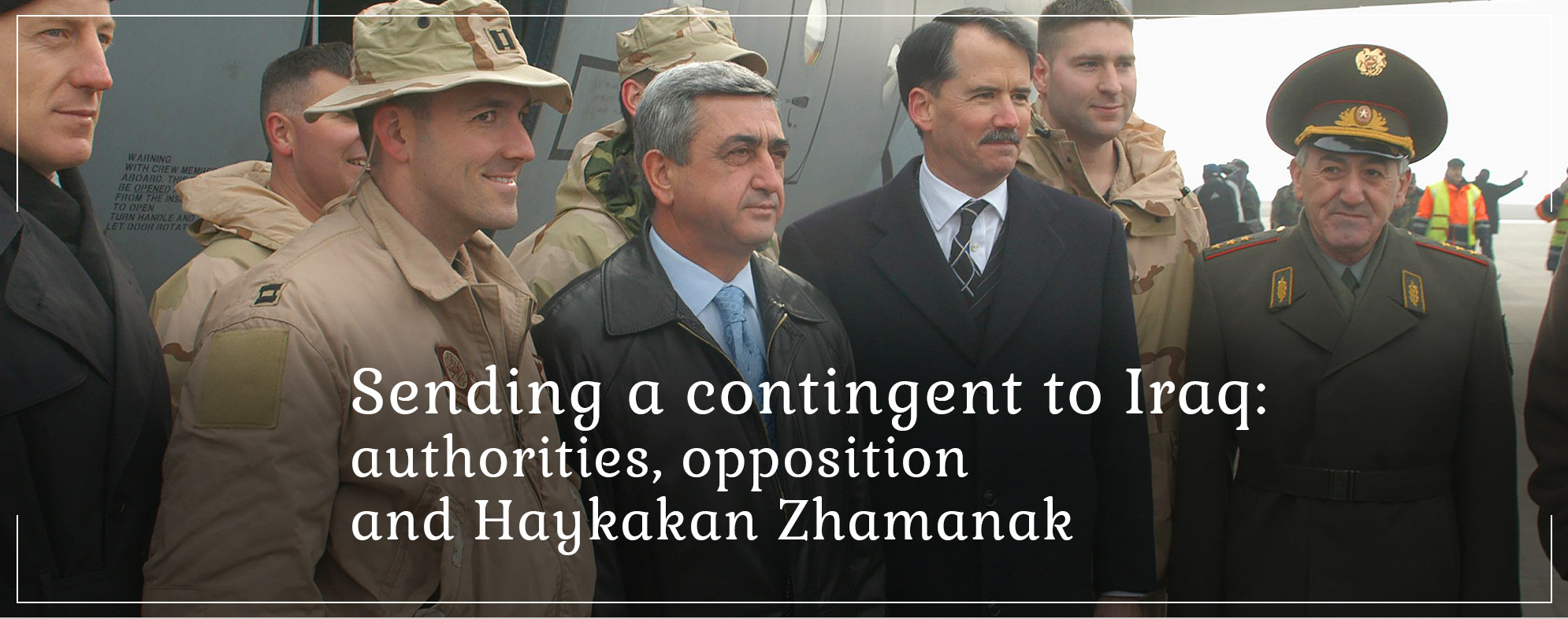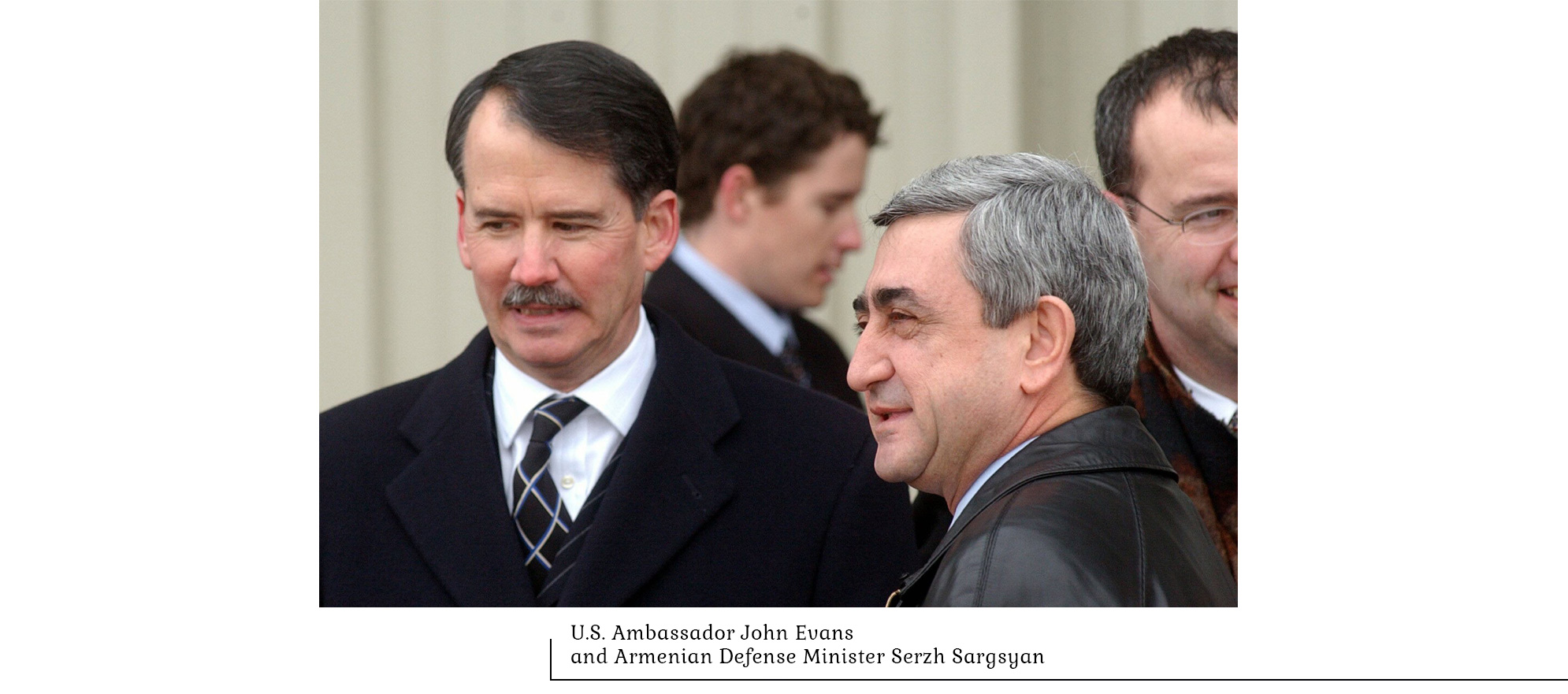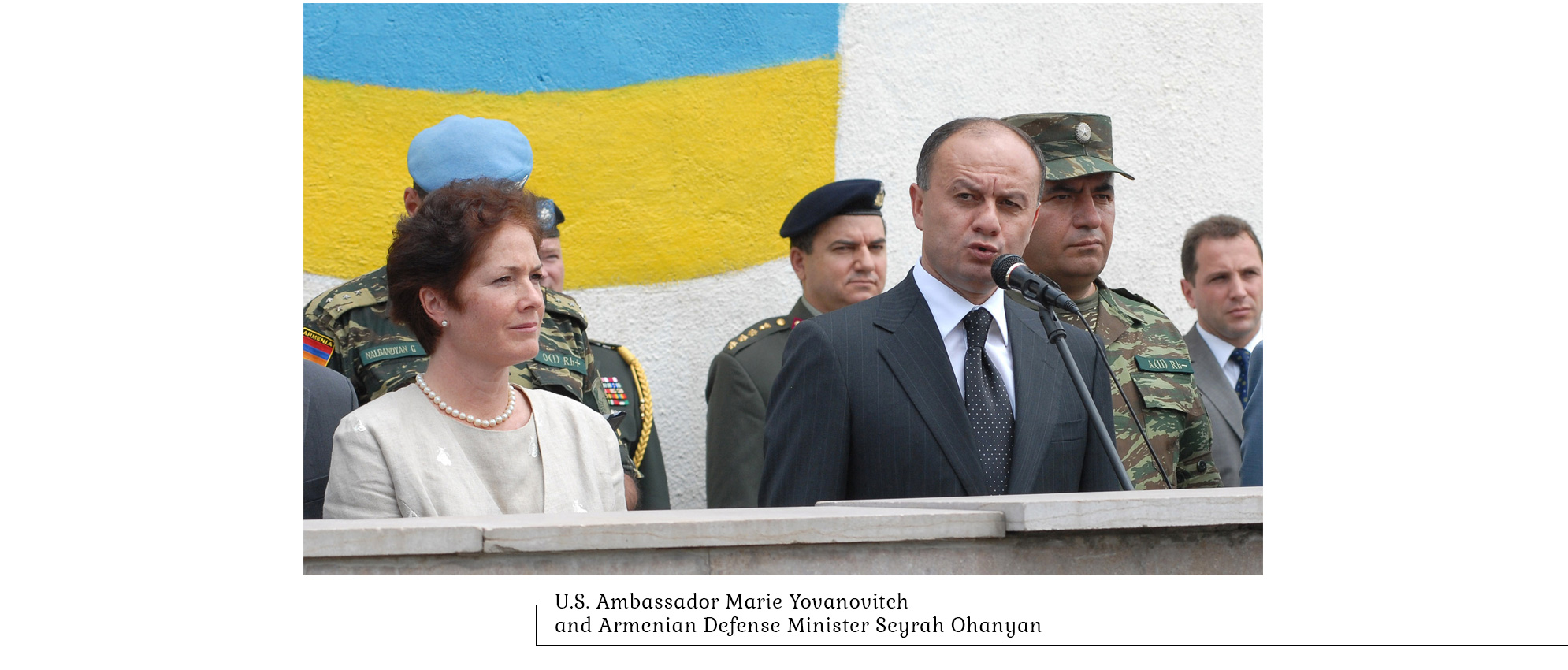
On January 18, 2005, within a span of just a few hours, 46 Armenian peacekeepers and Armenian Foreign Minister Vartan Oskanian departed for the Middle East. The military personnel’s destination was Kuwait while the minister’s was Egypt. Although their purposes were distinct, the coincidence was symbolic.
A non-combat unit of the Armenian Armed Forces, comprised of sappers, military doctors, and drivers, arrived in Kuwait for adaptation before proceeding to Iraq to serve within a multinational division under Polish command.
Vartan Oskanian visited the Egyptian capital to sign a memorandum with the Arab League, granting Armenia the status of a specially invited country in the organization. According to Oskanian, “the signing of this document is undoubtedly a historic event and opens a new page in the development of Armenian-Arab relations.”

On December 24, 2004, during a closed session, the National Assembly of Armenia ratified a memorandum to deploy 46 Armenian military doctors, drivers, and sappers in Iraq. The ratification was supported by 91 deputies, while 23 voted against it. The Justice bloc opposition faction and the Dashnaktsutyun party’s faction, which was part of the ruling coalition, voted against.
The deployment of peacekeepers to Iraq sparked heated internal political debates for several months. It appeared that authorities were instructed to say as little as possible about the motives for sending Armenian peacekeepers to Iraq. It is obvious that Armenia would never have sent its soldiers to Iraq if not for certain obligations to the United States.

The main burden of “explanatory work” fell on the Defense Minister Serzh Sargsyan. In December 2004, he said that “Armenia is obliged to send its contingent to Iraq.” “If we do suffer damage in the event of sending our contingent to Iraq, it will be much less than if we chose to abstain from involvement in these processes,” Serzh Sargsyan explained.
On January 18, 2005, the day of sending peacekeepers to Kuwait, the Defense Minister stated: “Armenia is engaged in a process that, despite ambiguous perceptions within the international community, including among the Armenian public, stands as one of the most crucial elements in building international security.” This was the first such statement by Armenia, which was the only country in the South Caucasus that did not support the U.S. war against Iraq.

There was no unity in the ranks of the opposition. While in October 2004, the secretary of the opposition National Unity faction, Alexan Karapetyan, spoke of “the unacceptability of sending an Armenian contingent to Iraq, which may result in mass emigration of Armenians from Arab countries,” on December 24, the faction unanimously voted in favor of sending peacekeepers.
Haykakan Zhamanak newspaper, whose editor-in-chief was the current Armenian Prime Minister Nikol Pashinyan, reported on January 20, 2004 on the details of the meeting of opposition representatives with a delegation of advisers and staffers of American congressmen in Yerevan. According to the newspaper, Artashes Geghamyan, the leader of National Unity Party, decided not to put the Justice bloc in an “uncomfortable position” and told the members of the American delegation that his opposition colleagues abstained from voting on the issue of sending peacekeepers to Iraq. Haykakan Zhamanak noted with indignation that Justice faction leader Stepan Demirchyan, who was present at the meeting, remained silent and did not say that he personally and his faction colleagues did not abstain, but voted against sending peacekeepers to Iraq.

Aram Sargsyan, a representative of the Justice faction and leader of the Democratic Party, said in an interview published in the Russian newspaper Nezavisimaya Gazeta on January 19, 2004:

Another representative of the opposition, Albert Bazeyan, one of the leaders of the Republic party, stated in the fall of 2004 that the decision of official Yerevan would not be well-received in Moscow, and in the event of sending an Armenian contingent to Iraq, “Russia may impose certain sanctions against Armenia.”

However, Moscow did not express any visible signs of discontent. In the fall of 2005, the Armenian government submitted a proposal to the parliament to extend the term of service of Armenian peacekeepers in Iraq. In the following years, the term of their deployment was extended several more times.
Ara Tadevosyan



